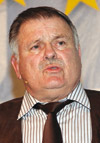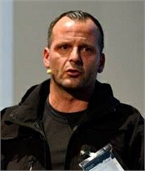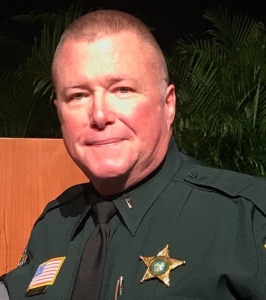Die Europäische Polizeitrainer Fachkonferenz fand am Mittwoch dem 07. und Donnerstag dem 08.03.2018 auf dem Messegelände Nürnberg statt.
Themen und Referenten am Mittwoch dem 07.03.2018
Begrüßung zur EPTK 2018 durch den ersten Vorsitzenden des Polizeitrainer in Deutschland e.V. Eckhard Niebergall und Werner Süßmann, Leitender Polizeidirektor
- 1975 – 2017 Angehöriger der Hessischen Polizei
- bis 1998 Dienst beim Polizeipräsidium Frankfurt am Main
- Lizenzierter Waffenausbilder (national & international)
- Ausbilder für Taktik, Nahkampf, Personenschutz
- Mitentwickler des INTERACT DEFENSE® TRAININGS
- 1998 – 2017 Fachlehrer an der Hessischen Polizeiakademie
LPD Süßmann ist seit 2011 Abteilungsführer der IV. BPA Nürnberg
Bernd Pokojewski: IS Attentäter mit Sprengstoffwesten-ATTRAPPEN
- Fallanalysen
- Absichten
- Prognose
Referent: Bernd Pokojewski war in seiner aktiven Zeit als Ausbildungs- und Einsatzleiter eines SEK maßgeblich an der Entwicklung von Geiselbefreiungstaktiken, Amoktäterbekämpfung und Anti-Terrortaktiken beteiligt. Er stand an der Spitze eines Sonderkommandos zur Bekämpfung der Straßenkriminalität in Frankfurt am Main. Später war er als Leiter einer Personenschutzeinheit für Schutzmaßnahmen einer Vielzahl gefährdeter Personen und Veranstaltungen verantwortlich.
Er ist weiterhin als Fachautor, Referent und Trainer tätig.
Dr. Dirk Scherp: Rechtliche Besonderheiten nach Schusswaffengebrauch
- Darstellung von Polizeitaktik und Vorgehen im Einsatz
- Beschreibung individuellen Verhaltens
- Umgang mit Presse und Öffentlichkeit aus Sicht der Verteidigung
- Einfluss des Disziplinarrechts auf die Verteidigung
Referent:
Beruf und Position
- Rechtsanwalt, zugelassen seit 2003 Of Counsel
Ausbildung und beruflicher Werdegang
- Studium der Rechtswissenschaften und Kriminologie an der Universität Mainz
- Staatsanwalt bei der Staatsanwaltschaft Frankfurt/Main und Generalstaatsanwaltschaft Frankfurt/Main
- Professor, Verwaltungsfachhochschule Wiesbaden, Fachbereich Polizei
- Chief Compliance Officer und Konzern – Geldwäschebeauftragter der Dresdner Bank AG mit globaler Zuständigkeit/Verantwortung
- Rechtsanwalt in einer wirtschaftsstrafrechtlich ausgerichteten Kanzlei
Tätigkeitsschwerpunkte
- Bankaufsichtsrecht, Wirtschaftsstrafrecht, Compliance
Publikationen
- Fraud Management – Abwehr von Kriminalität in der Organisation von Kreditinstituten und Finanzdienstleistern, 2011- Geldwäschebekämpfung außerhalb des Finanzsektors, in: Kriminalistik 5/2010- Compliance-Sonderuntersuchungen in Banken und der Datenschutz, in: BKR 10/2009, S.404
- Arbeitsauftrag: Geldwäscheverhinderung, 3. Auflage 2008 (gemeinsam mit Susanne Schmitt)
- Gesetze gegen die Geldwäsche und gegen die Finanzierung des Terrorismus – eine stille Verfassungsreform, in: WM 2003, S.1254.
- Compliance – aufsichtsrechtliche Maßnahmen zum Schutz der Wirtschaft und ihrer Kunden gegen die Wirtschaftskriminalität, in: BKA (Hrsg.)
- Wirtschaftskriminalität und Korruption, S.81
Tim O´Neill: Assessment - Embracing the ‘A’ word in everyday training
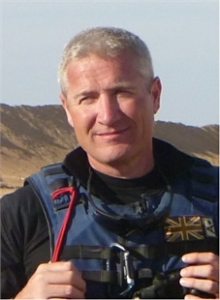 More than ever, training standards and operational effectiveness are at the fore of any post incident investigation. As such, it has become far less acceptable for students to just attend ‘lectures’, receive a tick-in-the-box and rely upon operational exposure to attain ‘match fitness’. Rather, todays world more often than not, requires learners to prove their ability and show a requisite level of competency by way of assessment.
More than ever, training standards and operational effectiveness are at the fore of any post incident investigation. As such, it has become far less acceptable for students to just attend ‘lectures’, receive a tick-in-the-box and rely upon operational exposure to attain ‘match fitness’. Rather, todays world more often than not, requires learners to prove their ability and show a requisite level of competency by way of assessment.
This presentation introduces and describes:
- The purpose and principles of assessment,
- Introduction to the ‘A Model’,
- Assessment variety,
- Underpinning doctrine
- Effective application
Referent: Tim O´Neill – Tim is a specialist law enforcement, firearms and medical training professional with over 30 years of operational armed policing, threat management and training experience within the UK and International arena with extensive experience of delivering counter-threat and personal protection training to experts deploying to overseas missions. Well-versed in the governance and management of high-risk business areas, live fire shooting activities and accomplished in the design, planning and delivery of high quality training to mitigate vulnerabilities, meet organisational requirements and satisfy universal standards of best practice and safety. Holding recognised teaching, assessor and safety qualifications, Tim is an active member of the Society of Education and Training (SET), Polizeitrainer in Deutschland (PiD), International Association of Law Enforcement Firearms Instructors (IALEFI), , National Association of Emergency Medical Technicians (NAEMT) and L3 member of the UK Faculty of Pre Hospital Care (Royal College of Surgeons Edinburgh) and regularly delivers training and presents to audiences at Regional, National and International events.
Ralf Schmidt: Anti-Terror Intervention im Trupp - neue Aufgaben der operativen Einheiten und des Streifendienstes
- Erfahrungen aus 2016 / 2017
- Methoden im Training
- Taktik
- Technik
- Zukünftige Entwicklung
Referent: Ralf Schmidt
1980 – 1985 Bereitschaftspolizei, Beweissicherungs- und Festnahmeeinheit
1985 – 1992 Polizeipräsidium Frankfurt, Streifenbeamter, 4. Polizei Revier -Bahnhofsgebiet-
1992 – 1995 Kriminalpolizei Frankfurt, Personen- und Milieufahndung
1995 – 2000 Hessisches Landeskriminalamt, Bekämpfung der OK
2000 – 2004 Polizeipräsidium Frankfurt, Personenschutz
2004 – bis heute Hessische Polizeiakademie, Lehrtrainer für Einsatztraining
Seit 1996 PiD Mitglied, verantwortlich für PiD Seminare und die Entwicklung von Taktiken und PiD Trainings
Pete Ebel: Preventing Excited Delirium In-Custody Deaths
- A multi-disciplinary approach (law enforcement and emergency medical) teaming up for a quick apprehension of an individual who possesses super-human strength
- Takedown techniques that focus on protecting all persons on scene including the drug-induced subject and emergency personnel
- New information on positional asphyxia, face-down positioning and chemical restraint of the individuals suffering from excited delirium syndrome
- Development of response protocols that make the survival of the patient a priority while also taking into account the safety of police and medical personnel
Referent:
Pete Ebel is in his 29th year as a law enforcement officer and is a lieutenant for the Palm Beach County (FL) Sheriff’s Office. He is currently the supervisor of major cases in the Narcotics Division. He has served as the commander of the Homicide and Firearms Investigative Units, the executive officer for the Violent Crimes Division, the Tactical Unit, and Gang Unit in his nine years with the agency. He began his career with the Lake Worth Police Department, which merged with the PBSO in 2008.
At LWPD, Pete served as a Road Patrol Officer, Tactical Unit/Street Crimes officer, Field Training Officer, Detective, Sergeant, Training Coordinator and Lieutenant. During his last five years at LWPD, he was the commander of the Special Operations Division, leading the Tactical / Street Crimes Unit, Narcotics Unit, K9 Unit and SWAT Team. Pete had previously served as an operator and team leader on the SWAT Team.
Pete has been an instructor for 20 years, and is a state-certified firearms and general topics instructor. He is an adjunct instructor with the Palm Beach State College Criminal Justice Institute, where he teaches academy and advanced classes. He teaches for the Florida Department of Law Enforcement’s Leadership Academy.
Pete specializes in the areas of use of force, excited delirium, tactics and safety and has instructed peace officers in nine states. He presented at the 2003 Florida Department of Law Enforcement High Liability Trainers Conference, and the 2007, 2014 and 2015 ILEETA Conferences. Pete was recently certified as a Force Science Institute analyst.
John T. Meyer Jr. & Steve Johnson: The dynamic use of reactive target systems
The concept and the underlying theory behind reactive targets is for every shot you get instant feedback from seeing the target react or not react from bullet impact. Reactive targets are a fantastic training tool; they add a level of immediate reaction, identification and increased stress to traditional target shooting. This course will cover the many different types of reactive targets targets and the proper and safe use of them.
Reactive targets that will be covered:
- Paper targets
- Three dimensional targets
- Steel targets
- Turning and swinging targets
- Moving targets
 Referents:
Referents:
John is President of Team One Network, LLC a company established to test, evaluate, train and market various manufacturers‘ products to the Law Enforcement community as related to officer survival. John led a team of instructors that pioneered the integration of formalized training doctrine with practical field experience. These cutting edge, realistic tactical training courses have become an industry standard. John was a Lieutenant with the DOD Police, where he served as a special reaction team leader and is a past President of FOP Middle Forge Lodge 100. He is Vice President of the International Association of Law Enforcement Firearms Instructors (IALEFI) John has written numerous articles that have been published on police training related subjects.
 Steve is a 32 year veteran of the North Carolina Department of Justice where he served as the Senior Firearms Instructor for the North Carolina Justice Academy. He was responsible for the training and certification of all law enforcement firearms instructors, all concealed carry firearms instructors, and all armed security firearms instructors. He has attended most major firearms manufacturer’s armorer courses, and coordinated and taught in other training programs such as a Law Enforcement Sniper Course, Submachine Gun Course, SWAT courses, etc. Steve currently serves as the Chairman of the Education & Training Committee of the North Carolina Criminal Justice Education & Training Standards Commission. He also chairs the Joint In-Service Committee that selects and approves all mandated training for all law enforcement officers in North Carolina. He also serves on the Private Protective Services Board which oversees the registration and training of all armed and unarmed security personnel in the state. Steve served as President of the International Association of Law Enforcement Firearms Instructors for sixteen years and continues to serve on the Board of Directors of IALEFI as he has since 1996.
Steve is a 32 year veteran of the North Carolina Department of Justice where he served as the Senior Firearms Instructor for the North Carolina Justice Academy. He was responsible for the training and certification of all law enforcement firearms instructors, all concealed carry firearms instructors, and all armed security firearms instructors. He has attended most major firearms manufacturer’s armorer courses, and coordinated and taught in other training programs such as a Law Enforcement Sniper Course, Submachine Gun Course, SWAT courses, etc. Steve currently serves as the Chairman of the Education & Training Committee of the North Carolina Criminal Justice Education & Training Standards Commission. He also chairs the Joint In-Service Committee that selects and approves all mandated training for all law enforcement officers in North Carolina. He also serves on the Private Protective Services Board which oversees the registration and training of all armed and unarmed security personnel in the state. Steve served as President of the International Association of Law Enforcement Firearms Instructors for sixteen years and continues to serve on the Board of Directors of IALEFI as he has since 1996.
Ralf Krüger: Polizeiliche Verhaltenserkennung 1.0 - Awareness Training
- Bewusstmachen von abweichendem Verhalten
- Erkennen von Personen mit kriminellen Absichten
- Praktische Anwendung in Training und Einsatz
Referent: Ralf Krüger, Jahrgang 1957, Polizeihauptkommissar, stellv. Leiter des Polizei-Training-Center (PTC) der Bundespolizeiakademie
1975 Eintritt in den damaligen Bundesgrenzschutz. Mit Abschluss der Ausbildung Zugführer in einer Ausbildungsabteilung.
1983 Wechsel an die Grenzschutzschule (heutige Bundespolizeiakademie) mit Verwendung an der Sportschule des BGS als Fachlehrer für Selbstverteidigung.
1984 Ausbildung an der Trainerakademie der Deutschen Sporthochschule in Köln, danach Fachlehrer im Polizeitraining.
2002 Wechsel in den Bereich der Luftsicherheit.
Seit 2010 Mitwirwirkung in internationalen Arbeitsgruppen im Bereich Luftsicherheit zum Thema Verhaltensdetektion.
Seit 2015 Vertreter der Bundespolizeiakademie in einem Forschungsprojekt der Bundespolizei zum Thema der polizeilichen Verhaltenserkennung.
Technische & taktische Innovationen für Training und Einsatz
Polizeiliche Mitteldistanzwaffen – Status Quo und zukünftige Entwicklung
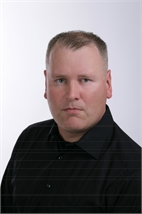 Referent: Peter Berners (Sig Sauer)
Referent: Peter Berners (Sig Sauer)
2016 bis heute: VP Sales SIG SAUER Behördenvertrieb Deutschland
2012 bis 2016: Technische Vertriebsunterstützung Heckler & Koch, international
2009 bis 2012: Dualer Studiengang Bereich Industrie an der DHBW für Heckler & Koch, dabei Fokus auf HK USA
2007 bis 2009: Hörsaalleiter an der Fallschirmjägerschule für Jagdkampf, Einzelkämpferausbildung und Abseilen aus Hubschraubern
2006 bis 2007: Stellv. Kompaniechef Jägerkompanie, hierbei KFOR Einsatz
2002 bis 2006: Zugführer Panzergrenadier- und Jägertruppe, hierbei SFOR und ISAF Einsatz
1999 bis 2002: Ausbildung zum Offizier des Heeres, hier speziell Panzergrenadiertruppe
 Referent: Björn Krusche (Heckler & Koch)
Referent: Björn Krusche (Heckler & Koch)
seit 2009 bei Heckler & Koch im Demo-Team tätig
von 2000-2008 Soldat bis heute Reservist im Bereich Ausbildung Spez.Kr.
Verwendung von handgehaltenen Analysegeräten für den Vor Ort Einsatz
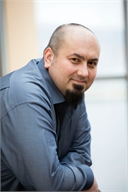 Referent: Dr. Alan Tanovic (analyticon)
Referent: Dr. Alan Tanovic (analyticon)
2007 Ausbildung zum Dipl. Chemiker / Philipps-Universität Marburg
2012 Promotion Themengebiet Strukturbiologie
2013 analyticon instruments gmbh
Zertifizierter Trainer für Fachpersonal nach UV-Schutzverordnung
2014 analyticon instruments gmbh
Technischer Berater
- Identifikation und Detektion unbekannter Substanzen
(Betäubungsmittel, Selbstlaborate (HME), chemische Kampfstoffe, etc.) - Visualisierung und Ortung verborgener Gegenstände
(Schmuggelware, USBVs, Abhöranlagen u.v.a.m.) - Weiterbildungen für Behörden und Organisationen mit Sicherheitsaufgaben
(Training, Schulungen, Workshops, usw.)
Themen am Donnerstag dem 08.03.2018 (praktisches Training)
PiD-Team: Preventing Excited Delirium In-Custody Deaths
 Dynamic scenario training will focus on recognizing symptoms of excited delirium, reacting to threat cues, utilizing tactics and manpower for a quick and safe takedown against an individual with almost super-human strength and utilization of a multi-disciplinary protocol to prevent an in-custody death.
Dynamic scenario training will focus on recognizing symptoms of excited delirium, reacting to threat cues, utilizing tactics and manpower for a quick and safe takedown against an individual with almost super-human strength and utilization of a multi-disciplinary protocol to prevent an in-custody death.
Practical Exercise will include the use of Protective gear, Marking cartridges, Electronic Control Devices or probes and red guns.
Instructor: PiD-Team
PiD-Team: Dynamic Use of Firearms and reactive Target Systems





- Requiring Multiple hits
- Specific target areas
- Pop up and fall down
- Different colors
- Light up or turn off
- Selection of multiple colors
Instructor: PiD-Team


